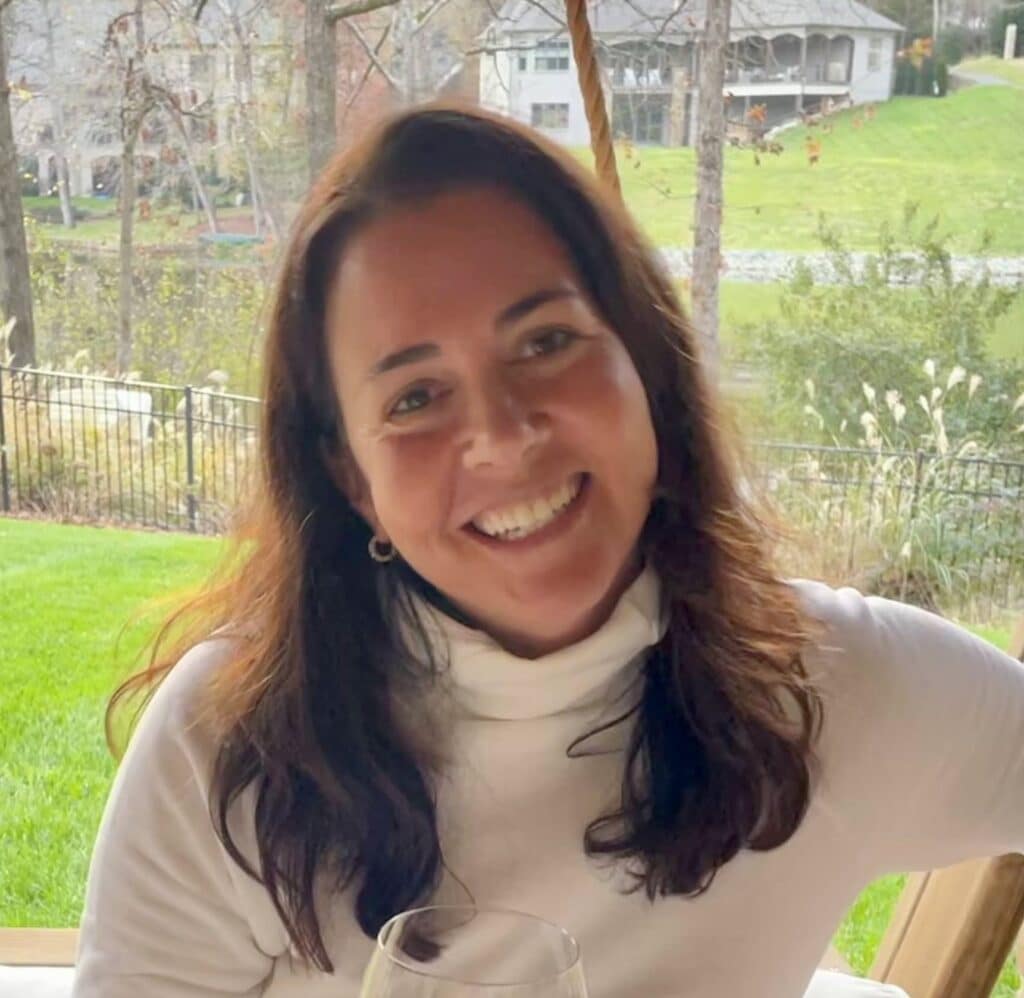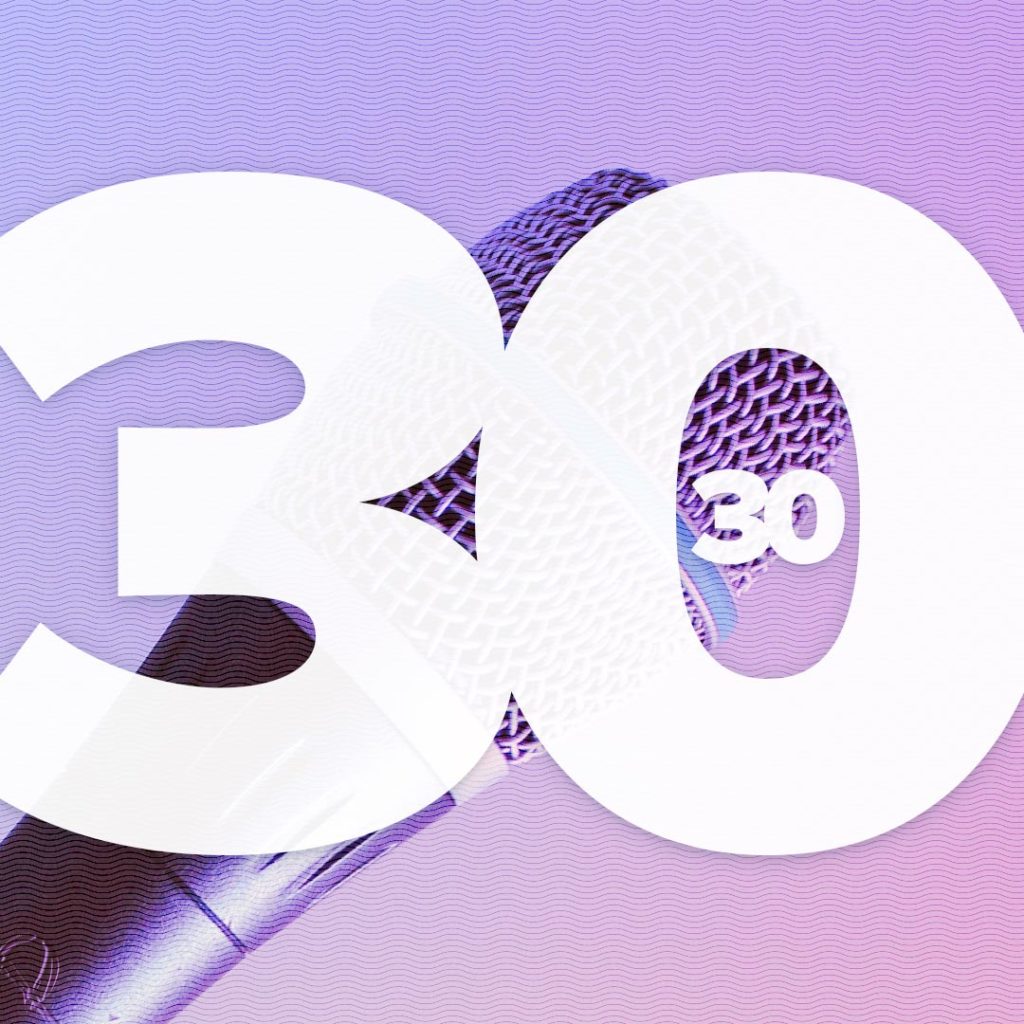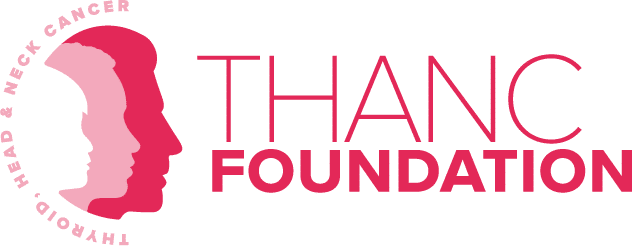
In May 2008—at the age of 35—I lived a normal and happy life, completely unaware that I might have thyroid issues. Unexpectedly, at an annual routine check-up, my gynecologist felt a lump on one side of my thyroid gland and asked if I felt okay. When she described symptoms such as lethargy and gaining weight, I told her that I had experienced none of them. Since I didn’t have any pressing symptoms, I initially planned to follow up with my primary care provider (PCP) a few months later. However, my gynecologist strongly recommended I go see the doctor immediately the next day.
At my appointment, my PCP said I needed an ultrasound. While I did not feel a strong sense of urgency, my husband, a radiologist, got me in the next day for imaging at his hospital. An ultrasound was performed that showed a thyroid nodule that required a biopsy. Right before my biopsy, I felt a bit nervous, but I didn’t feel pain during the actual procedure due to the numbing agent. Lying down with my neck extended and looking up towards the ceiling, I don’t remember feeling or seeing anything.
My biopsy results came back positive for papillary thyroid carcinoma (PTC). When I received my thyroid cancer diagnosis, I did not feel that worried. I consider myself a pretty optimistic person, and it helped that both my endocrinologist and husband assured me that papillary thyroid cancer was rarely life-threatening. Therefore, I continued to follow the guidance of my physicians calmly, confident that I could get through this.
My daughter and I turned this into a positive experience by cutting our hair together to donate to Locks of Love. I not only got rid of the hair that kept irritating my wound but also got to bond with my daughter and contribute to a good cause!
My endocrinologist recommended two surgeons, and one had a much more aggressive approach towards treatment than the other. I chose the surgeon with the more aggressive approach to minimize the chance of having a second surgery later. I ended up undergoing a successful total thyroidectomy surgery just 10 days after my initial diagnosis. The surgery revealed that the cancer had spread to several lymph nodes in my neck which they also removed.
After the surgery, I stayed in the hospital for a few days before returning home. The surgeon placed drains in my chest so that the fluid would easily dissipate from the area, and the drains stayed in for about a week after the surgery. My thyroidectomy scar became hypertrophic, or thick and raised, and became irritated when in contact with hair. My neck felt tight and my head felt heavy, as the stitches and scar tissue made it difficult to move my neck freely. My daughter and I turned this into a positive experience by cutting our hair together to donate to Locks of Love. I not only got rid of the hair that kept irritating my wound but also got to bond with my daughter and contribute to a good cause!
To prepare for radioactive iodine therapy after surgery, I started a low-iodine diet and periodically went back to the doctor’s office to check my hormone levels. Once I received the radioactive iodine treatment, I had to isolate myself from other people for a few days, which was the worst part of my thyroid cancer journey. I felt lethargic, depressed, and had no energy to do anything besides rest and watch TV. I felt lonely while separated from family and friends, but I was also reluctant to call and scare them with how horrible my voice sounded. I got through those tough days by staying hopeful that my synthroid medication would eventually kick in and help me feel better soon.
It took a while for me and my endocrinologist to find the right synthroid dosage for me, and I would fluctuate between experiencing symptoms of hyperthyroidism and hypothyroidism.
Amazingly, the scan I received after completing iodine therapy showed great results. In the first two years, I followed up with scans every 6 months, but followed up much less frequently for the following two years.
For several years after, even though I no longer had thyroid cancer, I still dedicated significant time and energy to my recovery. It took a while for me and my endocrinologist to find the right synthroid dosage for me, and I would fluctuate between experiencing symptoms of hyperthyroidism and hypothyroidism. It was a frustrating process, because I often couldn’t tell whether changes in my mood or energy levels were due to the synthroid or other factors.
I would often rely on my husband, sisters, or close friends to tell me if something about my behavior seemed new or different, since it was hard to recognize those things about myself. There was a time when I not only got a speeding ticket, but also got into a minor car accident. I felt that I was running a bit high at the time, and in hindsight, I wonder if it had something to do with how much synthroid I was taking.
Eventually, I found the right dosage and have felt pretty much normal since then. Only one time did I have a small hiccup, when I decided to start taking the recommended calcium supplements for women my age. Six months after starting the calcium supplements, I had an appointment with my endocrinologist, and my blood work came back hypothyroid, having low levels of thyroid hormone. I then learned that calcium, when taken at the same time as synthroid, interfered with uptake and was the culprit for my hypothyroidism. By taking calcium supplements at night and taking synthroid in the morning, I got my thyroid hormone levels back to normal. I felt a bit embarrassed at this mishap but learned an important lesson.
Trust your doctors to give you the information you need, and most of all, trust the process.
Hearing the word “cancer” is definitely overwhelming, but remember to fully utilize your physicians as a resource and ask them whatever questions you have. You will often get a lot of information at once, so I recommend taking notes or asking someone else to do so for you. I found this helped me remember details when I felt too overwhelmed to process them at that moment.
Additionally, try to get a second opinion when you can. You may only want to approach your treatment in a specific way, but gathering other opinions can help you make more carefully informed decisions. Lastly, try not to get carried away surfing the Internet for information. The Internet describes many statistics and situations that can be scary if you don’t have all the facts about your own condition yet. Trust your doctors to give you the information you need, and most of all, trust the process.
My thyroid cancer journey went smoothly with only a few minor hiccups. Ultimately, I learned the importance of taking care of what you need to do today. There will always be more to do tomorrow. Staying organized, proactive and positive helped me get back to my active, happy self—cancer-free!

Will You Share Your Story?
September is Thyroid Cancer Awareness Month. As part of that theme, we post stories written by thyroid cancer survivors, caregivers and medical professionals for our 30 Stories in 30 Days™ campaign. The insights they share can help others along their journey.


